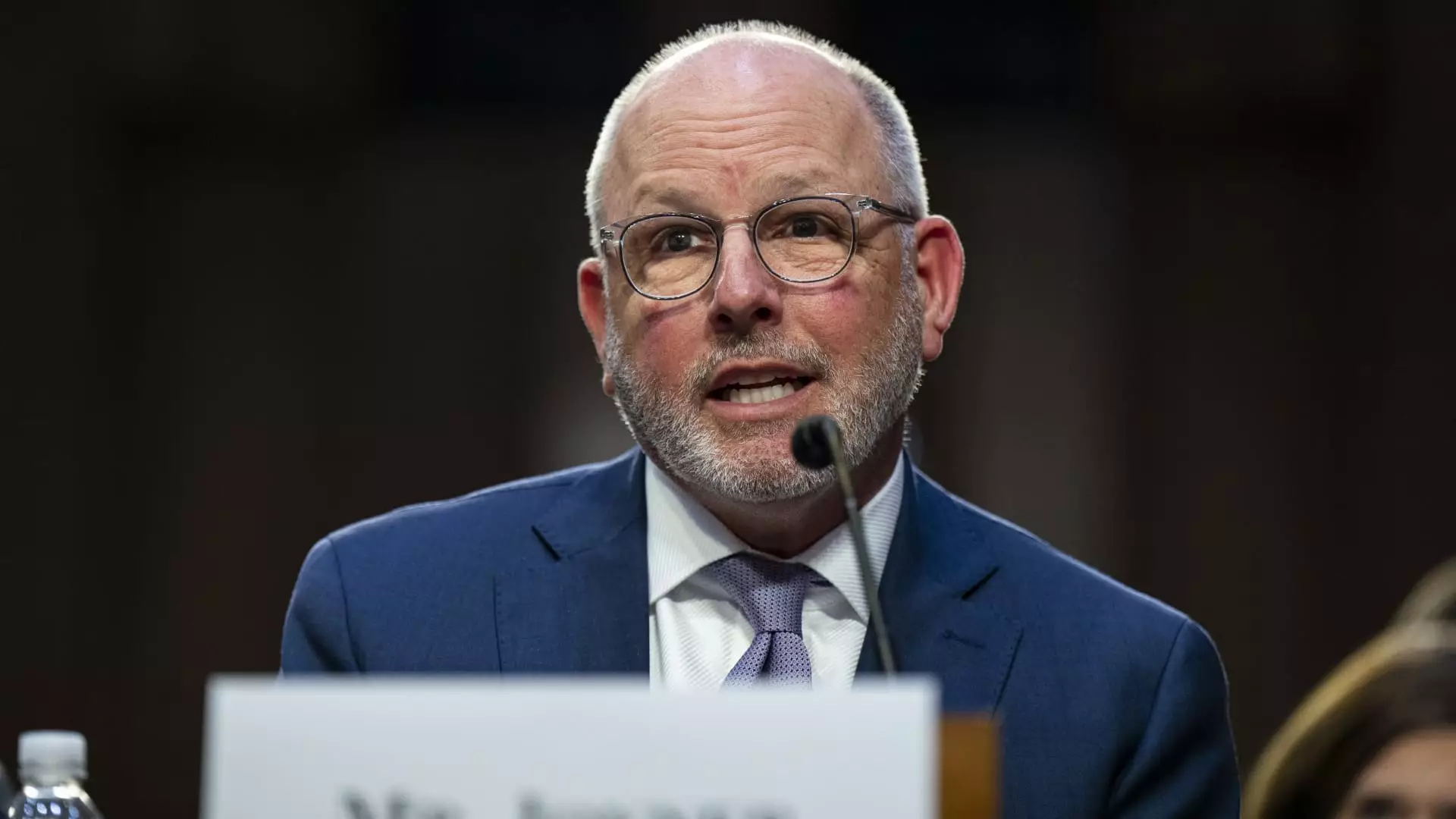In a significant move that signals a new direction for CVS Health, David Joyner has been appointed as the new CEO, succeeding Karen Lynch. This transition comes at a critical juncture for CVS, which has faced a challenging financial environment, marked by a nearly 20% decline in stock value this year alone. As the healthcare market continues to evolve, CVS’s strategies and the effectiveness of its leadership will be put to the test in the months ahead.
Joyner’s appointment, which took effect the day prior to the official announcement, can be interpreted as a strategic response to the company’s tumbling stock performance. The market reacted negatively, with CVS shares dropping about 11% in premarket trading following the news. This leadership change reflects the urgent necessity for CVS to stabilize its financial outlook while responding swiftly to the growing pressures within its core business segments.
CVS is currently navigating a series of economic hurdles, particularly in its insurance division, Aetna, and its retail pharmacy operations. Rising medical costs have created significant headwinds, complicating the company’s ability to maintain profitability. Notably, the company’s announcement in August of slashing its full-year profit guidance for the third consecutive quarter underscores the seriousness of its financial challenges. On top of this, CVS revealed plans to cut costs by $2 billion over the next few years, emphasizing its need for a more sustainable financial model.
These financial pressures have driven CVS to provide adjusted earnings guidance that falls short of previous expectations, citing increased medical costs that were previously unforeseen. The shift in its forecast indicates a broader systemic issue not only within CVS but across the industry, as companies grapple with the ramifications of rising healthcare costs and changing consumer behavior.
Compounding CVS’s challenges has been the growing scrutiny from its shareholders. Glenview Capital, a major stakeholder, recently initiated a push for significant changes within the company. This pressure highlights a tension between management and shareholders concerning strategic priorities and the effectiveness of existing approaches. Furthermore, CVS’s board has sought the advice of strategic consultants regarding potential options, including the possibility of dividing its insurance and retail pharmacy operations. However, a spokesperson confirmed that CVS will maintain its integrated structure, signaling a commitment to its current operational model.
Joyner’s extensive background in pharmacy benefits management—particularly as he previously presided over Caremark, one of the nation’s leading pharmacy benefit managers—positions him to address these complexities. His familiarity with both CVS and Aetna’s operations may be crucial as he seeks to restore confidence among investors and improve the company’s performance metrics.
As the newly appointed CEO, Joyner faces a multifaceted landscape of challenges. Chief among these is the ongoing examination from regulators and legislators concerning the practices of pharmacy benefit managers, including Caremark. The recent lawsuit filed by the Federal Trade Commission against Caremark and other major PBMs accuses them of relentless practices that inflate patient costs, posing a direct threat to the profitable operations of CVS.
In addition to regulatory pressures, Joyner must also contend with surging medical expenses associated with Medicare Advantage patients, exacerbated by the post-pandemic return of seniors to hospital care. Ensuring a profitable margin in this segment will be key for CVS to meet expectations as outlined in its corporate strategy.
Moreover, the company’s medical benefit ratio is projected to reach approximately 95.2% for the current quarter, a stark increase from 85.7% in the prior year. This indicator elucidates the challenges faced by CVS in balancing operational costs with insurance premium collections, which critically influences profitability.
As David Joyner steps into his new role, he will be tasked with implementing operational improvements and addressing the myriad of external pressures facing the company. The feedback from industry participants and health policy experts will likely shape his strategies moving forward. He inherits not only a company at a crossroads but also a wider healthcare ecosystem in flux.
Transitioning CVS Health into a future that not only stabilizes but also thrives amidst these challenges will require innovative thinking and decisive action. Stakeholders will be keenly watching to see whether Joyner can leverage his experience and strategic insight to elevate CVS Health beyond its current struggles, redefining its role within the intricate tapestry of American healthcare. This leadership change represents more than just a personnel shift; it is a pivotal moment that could redefine the organization’s trajectory amidst an ever-evolving market landscape.

